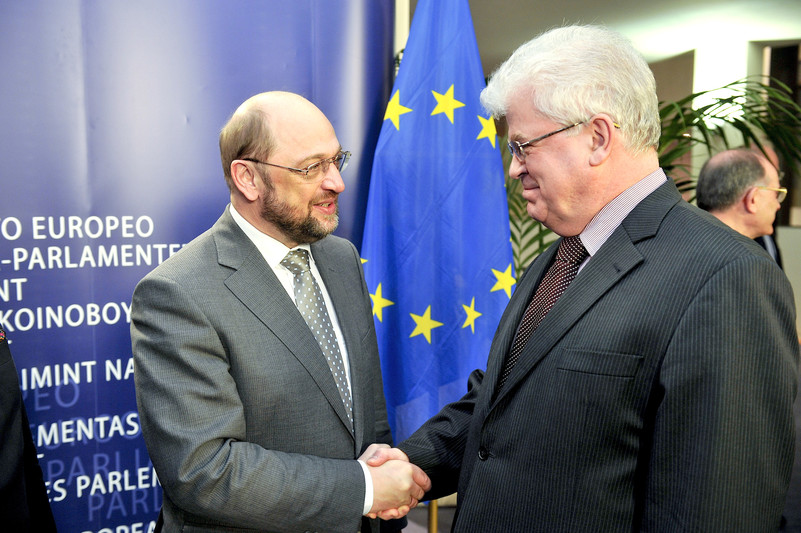Russia has threatened to seize Belgian assets in Russia in retaliation for Belgian seizures linked to the break-up of Russian oil firm Yukos.

Russia's ambassador to the EU, Vladimir Chizhov, who is, for other reasons, barred from entering the EU parliament (Photo: europarl.europa.eu)
The Russian foreign ministry said on Friday (19 June) that unless Belgium does a U-turn, it will “be forced to consider the adoption of adequate response measures against … the property of the embassy of Belgium in Moscow, as well as its legal entities”.
It called Belgium’s actions an “openly unfriendly act, [a] gross violation of the universally recognised norms of international law”.
It also said the Belgian seizures threaten the “proper functioning of Russian institutions and entities” in Belgium.
The Russian foreign minister, Sergei Lavrov, added the measures are designed to harm the image of Russia, which, also on Friday, is hosting top European CEOs at a business forum in Saint Petersburg.
The statements come after Belgian authorities froze the bank accounts of the Russian embassy to Belgium, its embassy to the EU, its mission to Nato, the state-owned Tass news agency, and Russian broadcasters VGTRK and Russia Today.
French authorities also confiscated Russian state accounts in 40 banks and some 10 Russian-owned buildings.
Lavrov said the seizures targeted its French embassy, a trade mission, and its mission to the UN heritage body, Unesco.
But he said that, unlike Belgium, France later “backed off”.
The seizures stem from a ruling, in July last year, by an arbitration court in The Hague, that Russia owes the shareholders of the defunct Yukos oil firm €44 billion in compensation.
Russia broke up the company, which used to be owned by Mikhail Khodorkovsky, an oligarch-turned-reformer, 10 years ago on tax evasion grounds and parceled out its assets to friends of Russian leader Vladimir Putin.
For his part, Khodorkovsky, who now lives in exile in Switzerland, said on Facebook that he is no longer a beneficiary because he gave up his shares in 2004.
He noted that, “as a Russian citizen”, he takes “great delight” in The Hague case because it “serves as a signal that robbery will not go unpunished, no matter how all-powerful the robber may seem”.
He added that it’s good for Russia, because it’s “a step towards the consolidation of property rights”, without which the Russian economy cannot prosper.
sourche: https://euobserver.com/foreign/129201
Δεν υπάρχουν σχόλια:
Δημοσίευση σχολίου